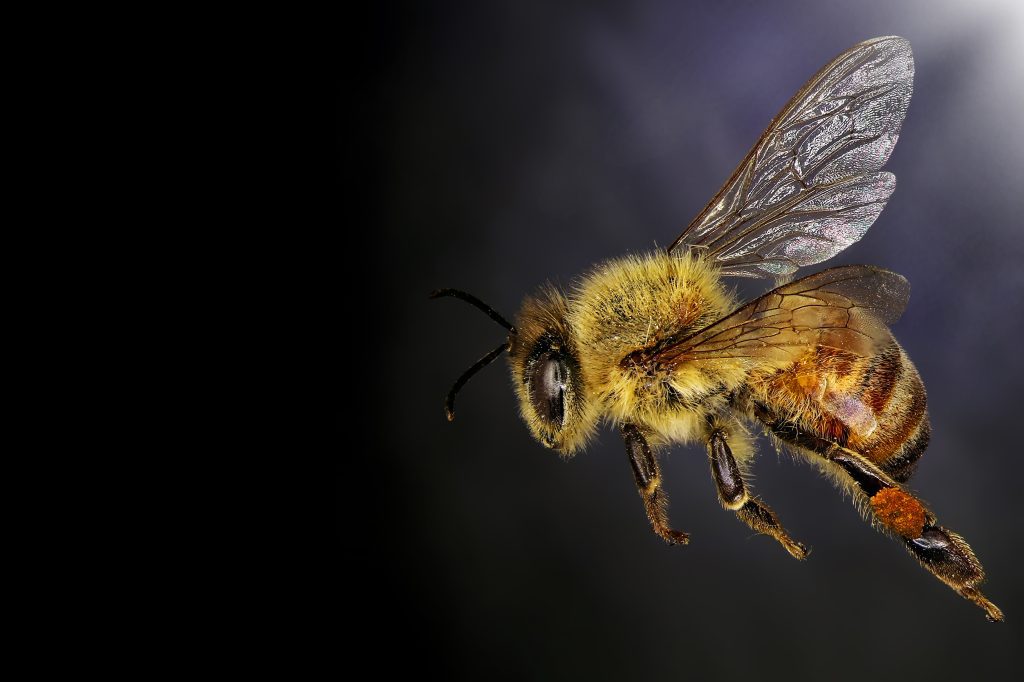
A project to develop robotic bees and monitor beehives with artificial intelligence (AI) won an award for one of the best global projects in a competition held in the UAE, according to Anadolu Agency.
Being one of the top two innovative global projects participating in the competition, the team from Middle East Technical University in Turkey secured the award after being selected from among 13 projects that participated in the contest organized by the Edge of Government platform.
The competition took place on the sidelines of the 2024 World Government Summit hosted in Dubai last week, attended by Turkish President Recep Tayyip Erdogan and more than 25 heads of state and government.
Launched last Monday and lasting until Wednesday, the summit is a global platform aimed at foreseeing the future of governments, exchanging knowledge, and serving as a roundtable for the most important global meetings discussing the fate of future governments amid rapid changes.
The Turkish university team’s innovative project involves developing robotic bees that feed endangered bees around the world and monitor beehives using artificial intelligence.
Erol Şahin, director of the Robotics and Artificial Intelligence Technologies Research and Application Center at the university and a faculty member of the Computer Engineering Department, briefed on the project named RoboRoyale, supported by the European Union’s Horizon program.
Şahin explained that the project, initiated two years ago by an international consortium led by Durham University in the UK, in partnership with Middle East Technical University in Turkey, Czech Technical University, and Graz University of Technology in Austria, was supervised by a research and development team of 20 people, with each participating country playing a different role.
Şahin emphasized that if bees become extinct, the entire ecosystem would be at risk of collapse. The project aims to develop a new generation of beehives equipped with the latest technologies.
“Our university’s engineers and biologists have worked on inventing an artificial intelligence system that can monitor beehives and creating robotic bees that monitor the feeding and health of queen bees, enabling them to produce more offspring,” he said. The team also developed an AI system that monitors the inside of the hive 24/7, thus allowing the health of the bees, especially the queen, to be monitored.
In addition, they developed a prototype of a small robotic bee that imitates worker bees and feeds the queen bee through external control, thus enabling the feeding of the queen by the developed small robotic bee.
Şahin noted that the developed robotic bee serves the queen bee, and the university team is currently working on making the innovative robots clean and maintain the hive. The system’s goal is to protect and improve the health of the entire hive.
Highlighting the importance of having more worker bees in the hive for the ecosystem, he added, “More pollination occurs, trees produce more fruit, and more seeds mean more food, in this way we can protect the entire ecosystem.”
The Turkish academic stressed that their main goal is to protect the health of the queen bee even if the hive faces difficult conditions. “In this way, we try to find a solution for the continuation of generations by protecting the endangered bees.”
He concluded, “A healthy queen bee that produces better offspring will pave the way for a healthier beehive,” expressing hope that the plant and animal ecosystem we live in will improve, leading to a healthier world through the bees coming out of these hives.
Turkey’s participation alongside India and Qatar as guests of honor at the World Government Summit is part of the summit’s efforts to enhance partnerships with countries that have successful experiences in strategic areas serving communities, according to a statement by the summit organizers.
In addition to more than 25 heads of state and government, the summit hosted over 85 regional and international organizations, 120 government delegations, a selection of thought leaders and global experts, 8 Nobel Prize-winning scientists, and more than 4,000 participants.
The 2024 edition focused on six main pillars, included 15 global forums discussing major future trends and transformations through more than 110 main dialogues and interactive sessions featuring 200 global personalities, including presidents, ministers, experts, thinkers, and future makers.
Inside Telecom provides you with an extensive list of content covering all aspects of the tech industry. Keep an eye on our Tech sections to stay informed and up-to-date with our daily articles.